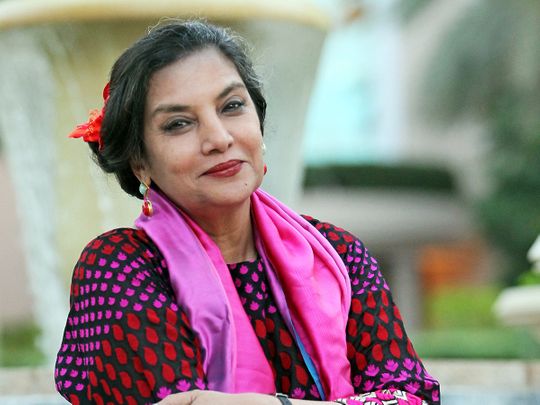
Indian National Award-winning actress and activist Shabana Azmi, who makes her web debut at 70 with psychological thriller ‘Kaali Khuhi’, wants to evoke a sense of moral outrage in viewers, one compelling film at a time.
“After watching ‘Kaali Khuhi’ [Black Well], I want everyone to have that strong feeling that something horrific like female foeticide has to be eliminated from our society,” said Azmi in an interview with Gulf News.
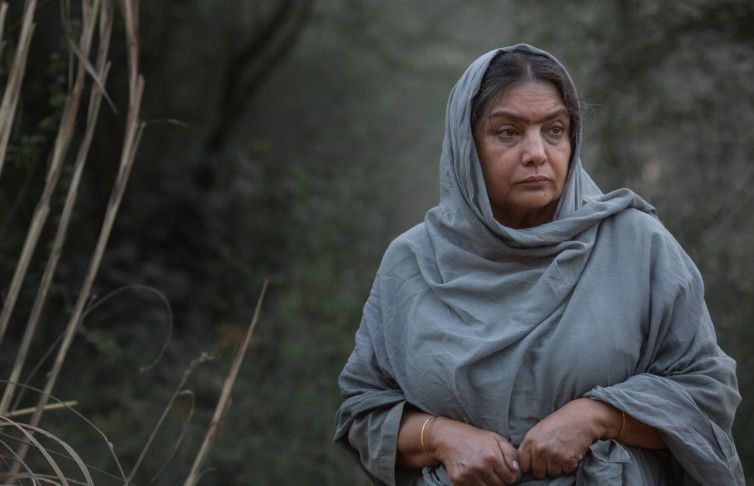
In ‘Kaali Khuhi’, now streaming on Netflix, Azmi plays a matriarch battling with the guilt of perpetuating patriarchy and gender-based violence.
“We need to create a society in which sensitivity and compassion become a reflex and not an afterthought. We need to build our citizens to have sensitivity,” explains Azmi.
Azmi, who has acted in more than 100 films in a career spanning over four decades, talks about her new project, the skewed gender ratio in India, the flurry of online hate towards Bollywood figures and what makes her blood boil these days. Excerpts from the exclusive interview with Azmi ...
What can you tell us about your new horror film ‘Kaali Khuhi’?
I would hesitate to call it a horror film because it’s a genre where you have certain expectations from it. You expect a lot of prosthetics, jump shots and scares. ‘Kaali Khuhi’ doesn’t have any of that. I would call it a dark thriller and it touches upon a very important issue that I feel very strongly — female foeticide. I find it absolutely outrageous that in spite of knowing that it happens around us in the 21st century, we still are not as outraged by it as we should be. And that’s because we live in a deeply patriarchal society where the boy is privileged over the girl just because he is born a male.
We really need to work a lot more to see that girls and boys are treated equally because these are symptoms and the rot lies in the patriarchy. So, the question remains: What do we do in a society where girls get discriminated against having access to education, to health and even to food? How do we shake this system up? My director of ‘Kaali Khuhi’, Terrie Samundra, could have quite easily made this film into a documentary and I’m sure that would have been very effective, but there have been documentaries made on the same subject in the past. And a feature film is definitely an attempt to reach out to a larger audience through this story.
Female feticide is a dense topic and perhaps such a subject lends itself to a documentary. So, what’s more important here: activism or the narrative?
It’s the narrative that’s important in a film. You may have an issue that you feel passionately about, but if the narrative isn’t compelling then you are wasting an important opportunity because art must always qualify as art. It cannot be propaganda alone. This script fulfilled that need as it told a story that held your interest. It was the script that caught my attention first.
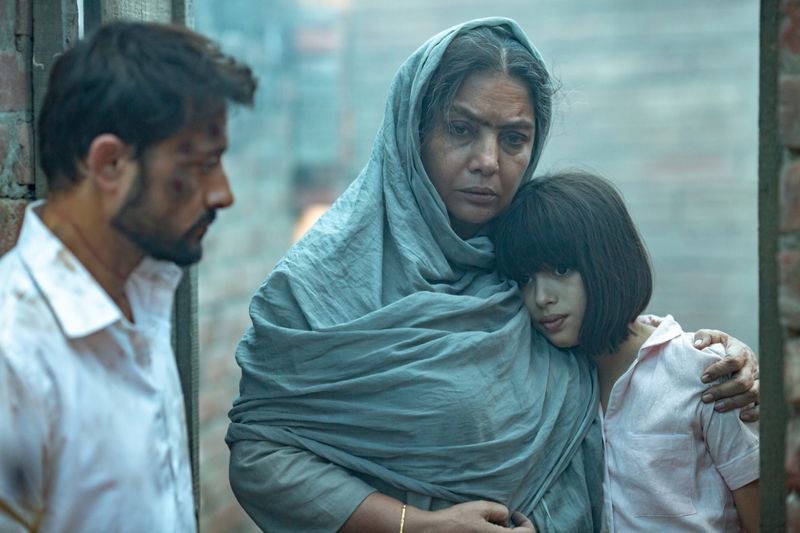
When you are working in a psychological thriller, how different is your process of acting?
The process of acting is not the same for any film because the movie and my character determines how I am going to approach it. Sometimes, I approach a film from outside in where I decide if I need to put on weight for this film or lose weight. I wonder if I have to look a certain way or sometimes you go deep into a character and from there details such as the walk/gait of the character emerges. Every film is treated separately. From this film, ‘Kaali Khuhi’, what I internalised is that this woman bears the burden of guilt very heavily on her shoulders and so everything about her is heavy because she has not been able to talk about this huge guilt that she’s carrying within herself. To look different, I got my eyebrows joined in the film and my voice was made a little heavier. I come across as a person who has stopped looking at herself completely because she’s caught in this heavy burden of guilt and that was different from the characters I’ve played.
Does this movie tell you what to think or where the guilt should lie? Does the film tell you who should be held responsible — the male or the female?
It’s patriarchy that should be blamed. Men are as much victims of patriarchy as women are because patriarchy decides that as a male you must never cry and that male masculinity is defined in terms of power you display. If you are soft person, patriarchy dictates that you are not male enough. The movie makes you wonder about the kind of society that we ideally want. Perhaps, a society that treats our boys and girls equally. Nowadays, we are definitely teaching our girls to be independent, but are we teaching our sons to redefine masculinity? Are we teaching them that compassion and sensitivity are also welcome qualities that don’t take your masculinity away but in fact add to your masculinity?
Are we finally moving away from this narrative of hypermasculine heroes and are OTT platforms giving wider berth to female-led narratives?
It’s such a welcome change particularly because OTT platforms are driven by commerce too. Now, they feel that women-led stories make economic sense because they understand who are the people who are watching these series … They are largely women right? So, if you’re only going to make films about males then the women are going to be disassociated from it. By giving us a berth, they are gaining bigger audiences. Often business makes sense, not good intentions.
So it’s still the ‘show me the money’ mantra …
Yes, absolutely.
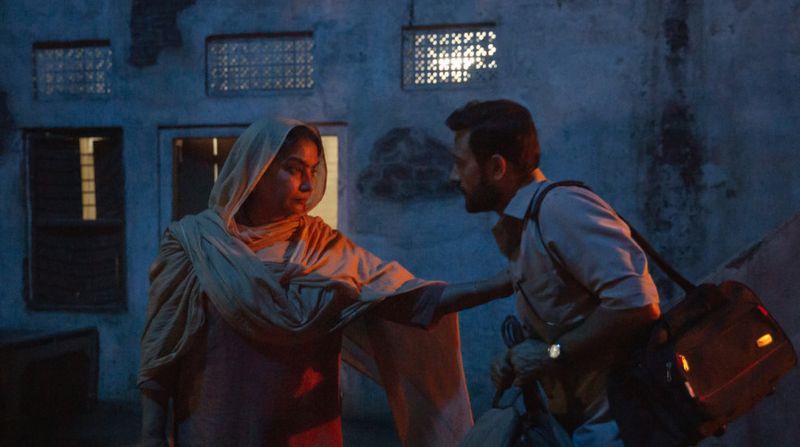
So, do you feel a sense of disconnect from your viewers when ‘Kaali Khuhi’ releases on an OTT platform first rather than a traditional theatrical release with a red carpet premiere in Mumbai?
It’s very important that at a click of a button you now have the possibility of watching a new film and technology has made that possible and accessible. The prospect that 193 countries have access to you and your work is a very special feeling certainly.
So how do you keep your faith alive and do you respond to those trolls? We live in grim times where finding good news in Bollywood has become difficult …
I’m an optimist by nature like my father was and I see this as cyclical thing. I think one goes through this every 30 years or so… Nothing is permanent. Everything changes and change is the only thing that is permanent. I cling to the good news rather than the bad news. In a country like India where 40 per cent of our population is under the age of 25 — that is the largest resource base — we need to invest in our young. And, when we do that, we can really look forward to a brighter future.
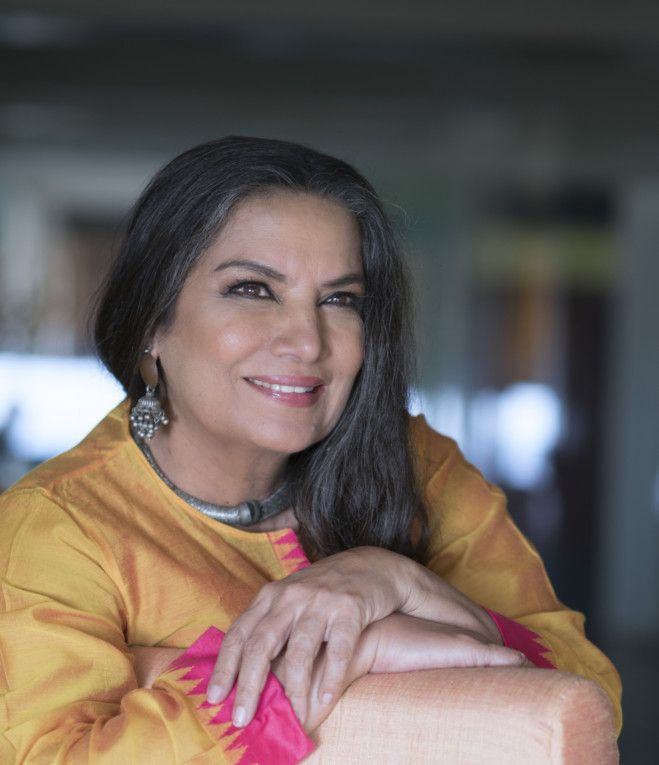
Your point about toxic online hate hit home. Recently, I was just reading that South Indian actor Vijay Sethupathi’s daughter was getting rape threats because he chose to be part of a movie … So as actors and public figures, do you feel vulnerable?
Of course, we feel vulnerable and it can lead to a real breakdown. The hate is unfettered and you have to have the sanguinity to realise that all that hate being spewed is done as a manufactured thing. We need to realise what’s real and what’s manufactured. And if something is manufactured, remember it is to fill the coffers of somebody else and it shouldn’t rub off on you.
What makes you angry these days?
More than anger, I am deeply disturbed by the manufacturing of hate around us — particularly in social media. I feel really sorry for the trolls because imagine getting up in the morning and spewing venom to people whom you’ve never met? What a sad life it must be. So I just feel sorry for people who have so much anger inside them that they spew venom and that makes me very sad.
Quote/unquote
“Content is king and that reality is finally becoming real. The realisation that you have to invest in good content is leading to a big change. Many interesting actors are now available from theatre, from small towns and from different kinds of spaces. The obsession with the urban western stories about rich people are giving way to stories about small town aspirations. So it is changing, the protagonist is changing from the make belief world to much more real world.”
Don’t miss it!
‘Kaali Khuhi’ is streaming on Netflix now.









